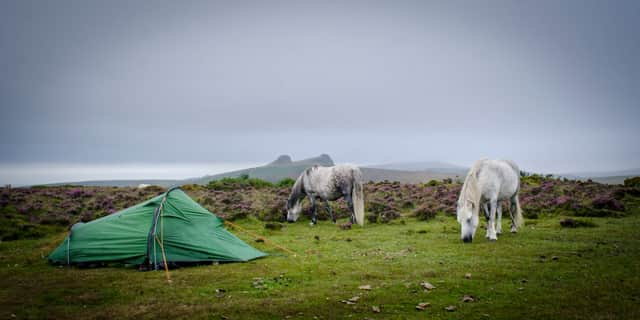Wild camping: Dartmoor ban and backpacking tradition explained - who is Alexander Darwall, can you camp?


Wild camping in Dartmoor has been restricted after a judge ruled that a private land owner can remove people from his estate. Located in south-western England, Dartmoor had long remained one of the last places in England and Wales where visitors had an assumed right to wild camp without gaining the permission of the landowner.
However, a High Court judge has now ruled that Alexander Darwall - the owner of an estate on the vast moorland - has the right to move on wild campers from his land. The ruling comes after a hearing at the High Court in December.
Advertisement
Hide AdAdvertisement
Hide AdWild camping had irginally been protected by the Dartmoor Commons Act 1985. The wording of this was however successfully disputed by Mr Darwall’s lawyers during the hearing.
The news has been criticised by groups such as the Dartmoor National Park Authority. The Park Authority attempted to argue that backpack camping was included in the Dartmoor Commons Act 1985.
But what is the tradition, is camping banned altogether, and who is Alexander Darwall? Here’s everything you need to know.
What is the backpacking tradition in Dartmoor?
For years, nature-lovers and adventurers have used the Devonshire national park to wild camp. Dartmoor is actually mostly privately-owned land with around 57% in private ownership.
Advertisement
Hide AdAdvertisement
Hide AdThe Dartmoor Commons Act 1985 had been interpreted as walkers having the right to roam in ‘Access Land’ areas, including the right to wild camp. These areas, while privately owned, gave visitors the right to roam with no restrictions with the national park becoming a popular destination as a result.
The new ruling on wild camping will prohibit visitors from staying on part of this Access Land without permission from the landowner, Mr Darwall. However, the ruling will not affect the access for walkers.
Who is Alexander Darwall?
Mr Darwall is a hedge fund manager who owns land in Dartmoor along with his wife Diana. The couple have owned around 4,000 acres of land in southern Dartmoor since 2013 and are the sixth-largest landowners of the national park.
The millionaire has been prominent in political funding in recent years. He is noted to have made significant donations to UKIP, the Brexit-affiliated Vote Leave campaign, and the Conservatives.
Advertisement
Hide AdAdvertisement
Hide AdMr Darwell is a seasoned landowner. Alongside his ownership of Blachford Estate in Dartmoor, he is also noted to own the 16,000 acre Sutherland Estate in Scotland. He bought the Scottish estate in 2016 for £5million.
What does the ruling mean for visitors to Dartmoor?
Sir Julian Flaux, chancellor fo the High Court, made the ruling following a two-day hearing at the High Court in December 2022. The judge sided with Mr Darwall’s argument that the Dartmoor Commons Act 1985 did not extend its right to access to wild camping.
Mr Justice Flaux said that the act did not “confer on the public any right to pitch tents or otherwise make camp overnight on Dartmoor Commons.” He added that it was “apparent” that some campers had caused “problems in relation to livestock and the environment”.
While permission must be given by landowners for wild camping, there are still areas within the national park which are available to camp on. This includes designated camping areas and campsites.
Advertisement
Hide AdAdvertisement
Hide AdThe Dartmoor National Park Authority had been campaigning to keep the entire park open to campers. Dr Kevin Bishop, Chief Executive/National Park Officer for Dartmoor National Park Authority, said: “We are really disappointed with the outcome but obviously respect the judgment.”
He added: “We are keen to work with landowners and other stakeholders to see how we can sustain opportunities for people to wild camp on Dartmoor.”
Comment Guidelines
National World encourages reader discussion on our stories. User feedback, insights and back-and-forth exchanges add a rich layer of context to reporting. Please review our Community Guidelines before commenting.
